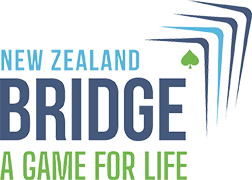
card shuffling
Hello all,
I got this question from a player the other day and the director wanted to know about shuffling the cards. It seems that a player received a board from a table and the cards showed that the board had been "passed in" as the cards had been put in suits and not disturbed...so he took advantage of this knowledge and bid even though he only had 10 HCP and got a good board out of it. The player wanted to know if it was ok.
The director asked me about the law on that...I did mention Law 7C. and the meaning of the word "should" described in the Introduction page v ....where it says"Should" do (failure to do it is an infraction jeopardizing the infractor's rights but not often penalized"....
My question is: did a player ever get penalized and what would the penalty be ? and who gets the penalty? Is the infractor the player who did not shuffle? or the one who took advantage? and do we need to prove it?
I would love to hear your experienced feedback on this ....
Cheers
Helene
Latest Posts on this Thread
- ALLAN JOSEPH10 Apr 2016 at 06:35AM
Hello Helene , you have identified the issues exactly ., and there is no one answer for all cases .
Firsty there is the consideration of player education , and players do need to be reminded to " shuffle ' the cards before returning them to the board AND the reason for this .
I do know that at some of the more social local club sessions , players who have time after the playing the hand deliberarely sort the cards into suits again before returning them to the board as a gesture of courtesy for the next table ! ( I wouldn't like to insist that they do otherwise ! ).
Although neglecting to shuffle the cards is an infraction.,I would not consider a procedural penatly (under 90B,),if this occured only sporadically . I would talk to the players involved and expalin the reason
However , if the same player/s were involved in a similar incident in the near future , I would take a much firmer approach and tell them that this must be done ! Thereafter ,deliberate neglect to follow this request would be considerared a penalizabe infraction ,more because of failure to follow the directors request than for the infraction itself .
The second issue you raise is more serious in nature :
Did the player who picked up the sorted hand use unauthrised information from this and in contravention of Law 16C make a call to his side's advantage ?
Do we need to prove it ? Well I guess so , but HOW could we do so ?. Look into their eyes ? or perhaps a lie detector ,?
If they did actually use this UI, , their come uppance will occur the next time they do so and get a very bad board.,and serves them right too !
So I guess this infraction is self-rectifying !
Their is a additional issue that according to Law 16C , the player who picks up this " sorted ' hand , should notify the director of his/her dilemna ( away from tthe table )., The director would then be in a better position to review any eventualities.
There is no one answwr for all cases , and that is the purpose of Law 81C2- the powers of the director includes " interpreting " the Laws.
Exactly how you " interpret" the laws in this situation would depend , among other things , whether this occured at a social club session or at an Open Tournament . For an Open Tournament, I might consider "cancelling "the board and giving both sides average plus..( without actually accusing anyone of using UI )
Allan
- NICK WHITTEN29 Apr 2016 at 08:14AM
Hi folks
What I am interested in is:
How can UI (in the form of receiving sorted cards in the board) demonstrably suggest one logical alternative action over another?
Even excluding these possibilities:
It was a particularly interesting hand and the prrevious table had analysed it
or
it had been fouled and could not be played
or
One of the passes at the previous table was an aberration with a perfectly sound openerA bid could lead to a good contract or a bad one or result in the opponents getting into a contract they would not have otherwise bid which might also be good or bad
A pass could lead to a pass-out or give the next player(s) to bid similar options as above.
It is my view the requirement to shuffle is just a procedural matter, similar to the requirement, when dealing manually, to deal the cards one at a time.
cheers
Nick
Click here to log in.
